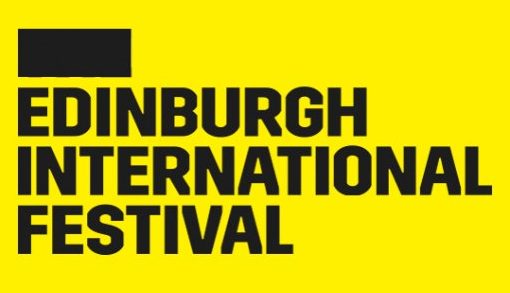Edinburgh International Festival launched its programme yesterday, and The Wee Review was there, busily tweeting away, as Director Fergus Linehan talked guests through the programme (it’s not bad manners, we were actively encouraged). This year the Festival hits 70, at a time when political upheaval is making Europe’s foundations look shaky again. The Festival that was set up to bring the continent together after World War II now has to respond as Britain breaks away. Not only that, but with austerity continuing to bite, there isn’t a lot of money sloshing around to fund arts festivals.
So against that less than positive backdrop, what is to be made of this year’s line-up?
Opening Event
EIF’s first two partnerships with 59 Productions – Harmonium Project and Deep Time – have gone down very well indeed. This one – Bloom – was skirted over very quickly at the launch, with promises of full details on 26 June. No mention even of where it is (programme just says “a precinct of the city”). Something super special lined up? Or they haven’t quite figured it out themselves yet? Time will tell.
Opera
Our resident fanatic, Hugh Kerr, shook Linehan’s hand in appreciation at this year’s meaty programme, having been critical of the slim opera section in recent years – 2015 and 2016 both had just three. There’s a chunky selection for 2017 though, including Verdi’s Macbeth (the first opera performed at the first festival in 1947) and Puccini’s La Boheme (both by Turin’s Teatro Regio), and Ivan Fischer and the Budapest Festival Orchestra return with a production of Don Giovanni. There’s room for Scottish Opera too (another thumbs up from Hugh for that) who co-produce Greek, Mark-Anthony Turnage’s 1988 festival opera based on Steven Berkoff‘s reworking of the Oedipus story.
Theatre
The Old Vic, instrumental in the first Festival 70 years are doing an “Orwellian” Ayckbourn – The Divide – that sounds potentially brilliant.
But, what’s going on elsewhere? Traverse Associate Zinnie Harris has a hand in THREE different pieces, including one with the Citz, one with the Lyceum and one at the Trav directed by Orla O’Loughlin. Why is the Trav, with its great Fringe traditions, getting into bed with the EIF? And what are the implications for their own programme?
The implications for the EIF programme are clear – less space for international works. There’s nothing as starry as Juliette Binoche in Ivo van Hove’s Antigone, or as bonkersly brilliant as Volksbuhne’s excellent Murmel Murmel two years ago. And no room for foreign language plays like the German and Russian Shakespeares last year.
Supporting and promoting Scottish theatre is all to the good, but when the Traverse takes up residence in the EIF programme, one can’t help reading it as a contraction of possibilities. The slap of funding cuts leaving its mark?
Dance
“Finest dance company in the world” Nederlands Dans Theater will be in town with a triple bill that includes scores by Max Richter and Philip Glass. Seville’s Maria Pagés brings some of the international flavour missing from the theatre programme with Yo, Carmen, a contemporary flamenco performed in Spanish, Arabic, Japanese, French and English. One presumes the title is in Spanish, rather than in 1980s hip-hop.
Speaking of which, East London hip-hop company Boy Blue Entertainment have a strong looking urban dance piece, Blak Whyte Gray.
Classical Music
In another nod to history, Haydn’s Surprise Symphony – the first work at the first concert in 1947 – will open the 2017 version too. Benedetti plays Brahms has populist appeal, as does Bryn Terfel. But one of the most interesting aspects of the classical programme is the re-opening of St Cecilia’s Hall, the oldest purpose-built concert hall in Scotland, dating to 1763. It’s an opportunity to hear, among other things, early music group Ensemble Marsyas and Iranian-American virtuoso Mahan Esfahanin on an 18th century harpsichord. Period music in a period setting.
Contemporary Music
It’s high time more respect were paid to Edinburgh’s own The Incredible String Band, so the guest-filled homage at the Playhouse is just the job. Mike Heron has been benefiting from the musical support of Glasgow’s Trembling Bells in recent years, so they might well turn up.
Jarvis Cocker and Chilly Gonzalez‘s project shapes up well on available evidence, but it’s more a curio than a showstopper. And, of course, Gonzalez was here at the festival only two years ago. The always brilliant PJ Harvey has visited Scotland as recently as last November, too. So the contemporary music programme lacks that instant buzz of freshness as when FFS turned up in 2015. Having said that, Magnetic Fields fans will be delighted their man is showing up with his latest, 50 Song Memoir.
Hub gigs are gone. This year, Festival HQ has been turned over to cabaret star Meow Meow for the duration for her Little Mermaid. It seems to suggest Alan Cumming’s Sappy Songs went down better there last year than the Young Fathers‘ joyous hip-hop riot. The programme has skewed away from that kind of thing.
Conclusion
Get your tickets booked. There’s plenty you don’t want the “sold out” signs going up on before you’ve had your chance. But it’s hard not to read some negative signs into this programme – be it the Scots hunkering down in the theatre section, or the vagueness of the opening event. There’s also a few too many repeat visitors. Linehan’s first year shaped like a push into new territory. This feels something of a retrenchment. It’s also a year of retrospection forced by the anniversary, limiting the scope for bold new steps. Excitement is no doubt in store though, possibly in unexpected places.
